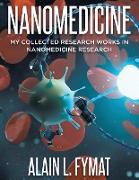- Start
- Nanomedicine
Nanomedicine
Angebote / Angebote:
Nanotechnology includes diverse fields of engineering and science and may be able to create many new materials and devices with a vast range of applications (in nanomedicine, nanoelectronics, biomaterials, energy production, consumer products, etc.). The effects of artificial nanomaterials on the human body have long been known, as many practical uses of nanoparticles go back a long time, but medical applications are of special relevance. As a medical application of nanotechnology, nanomedicine is focused on harnessing nanotechnology to effectively diagnose, treat, and prevent various diseases. It aims to efficiently deliver medications that have been reduced/minimized to the necessary dosages, and in the places where they are needed, it results in improved outcomes with less medication and less or no adverse reactions or side effects. In 1995, approval of the very first nano-therapeutic product (Doxil) is generally viewed as the dawn of nanomedicine for human use. In 2021, the COVID-19 pandemic created an urgent need for an effective vaccine. Nanotechnology played an important role in enabling the development of messenger-RNA vaccines that have since been administered worldwide and may provide a novel platform for vaccine designs. Biological processes, including the ones necessary for life and those that lead to cancer, occur at the nanoscale. Accordingly, nanobiotechnology provides us with the opportunity to study and manipulate macromolecules in real time during the earliest stages of cancer progression, the possibility of rapidly and sensitively detecting cancer-related molecules, enabling us to detect molecular changes even when they occur only in a small percentage of cells, and the potential to generate entirely novel and highly effective therapeutic agents. It also offers important benefits for diagnosis by providing new molecular contrast agents and materials to enable an earlier and more accurate initial diagnosis, as well as continual monitoring of cancer patients during their treatment. It offers the means to target chemotherapies directly and selectively to cancerous cells and neoplasms, guide in surgical resection of tumors, and enhance the therapeutic efficacy of radiation-based and other treatment modalities, all of which add up to a decreased risk to the patient and an increased probability of survival. Another promising application of nanomedicine principles is in clinical neuroscience, particularly in the treatment of neurological disorders (epilepsy, Parkinson's disease, Alzheimer's disease, etc.). While nanomedicine has not yet fully delivered on its promises, it remains an important new vista in medicine in the several instances covered in this book.
Folgt in ca. 10 Arbeitstagen




